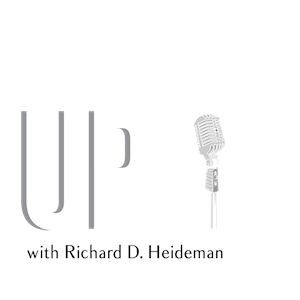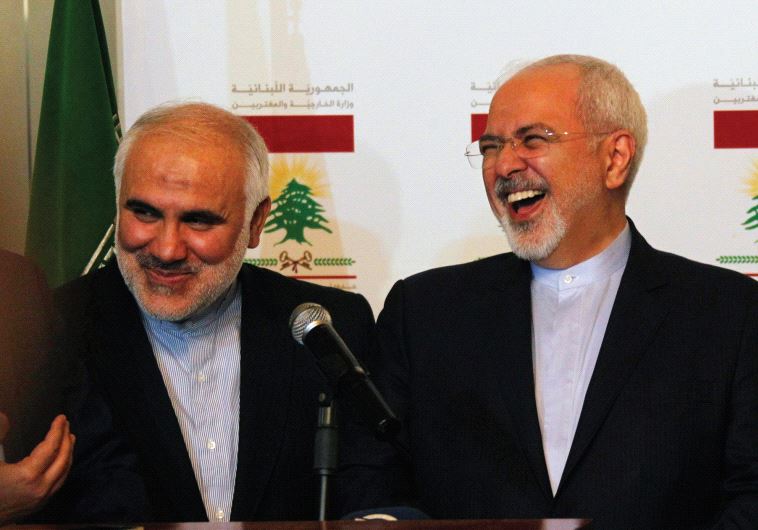With the US elections concluded and the transition period underway, President-elect Donald Trump has an immediate opportunity to press his agenda and reevaluate some of the policies of the Obama administration. As the president-elect stated throughout the elections, he considers the Joint Comprehensive Plan of Action (JCPOA), otherwise known as the Iranian Nuclear Deal, a “disaster” and “the worst deal ever negotiated,” a view shared by many leaders and experts in Israel and around the world.
Although Trump has not yet outlined the details of his envisioned potential new deal on Iran, should he decide to negotiate rather than abrogate a new deal early in his administration, he can and should significantly freeze that portion of the $100 billion to $150b. in sanctions relief that Iran has not already received and move to enact severe sanctions against the Islamic Republic of Iran for its past and ongoing conduct.
What is now clear from reports, including by the IAEA, is that Iran has repeatedly violated the deal. A material breach of the agreement may entitle abandonment of the entire agreement, particularly as the JCPOA does not have treaty status due to the failure or refusal of the Obama administration to submit the agreement to the US Congress for appropriate legislative action.
Just this past week, while most of the international focus was on the elections, it has emerged that Iran is in significant violation of last summer’s nuclear deal by stockpiling more heavy water than the permitted 130 tons. In response to a journalist’s question about this violation, the State Department deputy spokesperson Mark C. Toner said: “They did overstep or go beyond the limit. We take that very seriously. I’m not going to use the V-word [“violation”] necessarily in this case.”
Toner was very circumspect in his language because he knows that the use of the term “violation” has legal and procedural significance. A Trump presidency can and should first and foremost stop providing rewards for an Iran that is increasingly and openly violating the agreement, paying no penalty for its wrongs and continuing to sponsor and support terrorism against the US, Israel and our allies.
Moreover, the payments to Iran should be withheld and should be instead made available to the American Victims of Iranian Terror, who hold more than $43b.
in US federal court-issued judgments that Iran owes American victims of terrorism due to Iran’s sponsorship of terrorism and role in arming, providing material support for, training and harboring many of the most dangerous terrorist organizations in the world. US federal courts have found Iran liable for incidents ranging from the 1983 US Marine barracks bombing in Beirut to attacks upon innocent schoolchildren in Jerusalem and the tragic attack upon America on September 11, 2001.
INCREDIBLY, IN January of this year, $400 million in cash was secretly handed over to Iran by the Obama administration in what appears to many to have been a ransom for the release of four captive Americans. Making the move even more circumspect, wooden pallets stacked with euros, Swiss francs and other currencies were flown into Iran on an unmarked cargo plane. The $400m. is apparently part of $1.7b. that the US paid to Iran as a settlement for money frozen back in 1979, with the additional $1.3b. added in as a supposed “compromise” on the amount of interest Iran claims to be owed by the US.
While the White House has denied that the money was in exchange for the Americans’ freedom and claims it was instead part of an earlier settlement, the money was delivered to Iran on the same day the hostages were released from prison and has raised many questions, including by Justice Department officials, surrounding the lack of transparency of the current administration.
For many, like former assistant US attorney for the southern district of New York Andrew C. McCarthy, the $400m. payout was viewed as a sign to Iran that America is willing to pay for hostages, and they believe this will incentivize Iran and terrorist groups to take more captives. Iran has already detained at least four or five dual nationals since the release of the four American prisoners, refilling their stock of hostages.
Furthermore, Iran continues to fund radical terrorists to this day and there is no telling how much of the funds transferred by the Obama administration will go straight back into the hands of terrorist organizations such as Hamas, Hezbollah and Houthi rebels, and fund Bashar Assad’s killing apparatus in Syria. Under the 2016/2017 Iranian budget, all money from settlements must be added into the military fund and it appears that an additional $1.7b. was allocated to the Iranian military for the upcoming year.
As Senator Ted Cruz noted when he was asked about his work trying to initiate a Pentagon investigation into the illicit giving of funds to Iran after the Iranian- backed Houthi rebels shot missiles at a US Navy destroyer in the Red Sea, “It is not coincidence that Iranian aggression against America and our allies has doubled since the JCPOA went into effect.”
As the Iran Deal was essentially reached as a political commitment and was not presented to nor is it a treaty ratified by Congress, the fast-track executive authority that Obama sought and relied upon in 2015 could potentially prove instrumental in President Trump’s ability to renegotiate with Iran. Even State Department deputy spokesperson Toner admitted that the Iran deal was “an agreement that any party can walk away from,” which provides the next American administration with significant leverage to change the terms of the deal.
The Iran giveaway must be set aside. The new president has the impetus, mandate and ability to create a better deal for America, and the majority Republican Congress will be able to quickly support President Trump and act to hold Iran accountable for its sponsorship of terrorism, enforce sanctions against Iran and restrict its access to funds that enable continued and future heinous acts against America and our allies.
Op-Ed Originally published in The Jerusalem Post by Richard D. Heideman

